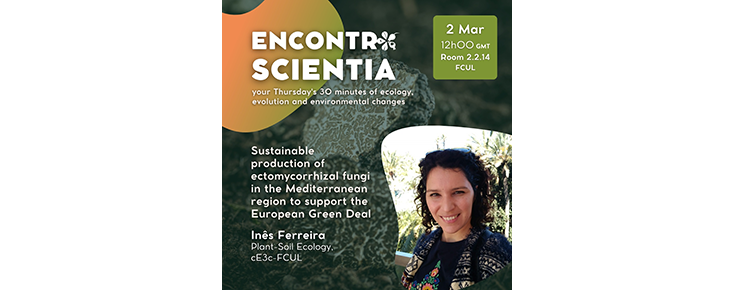
Por Inês Ferreira (cE3c - Plant-Soil Ecology).
Ectomycorrhizal fungi (ECMF) cultivation is an important economic activity in the Mediterranean region. Sporocarps from ECMF species such as Terfezia claveryi, Tuber melanosporum, Tuber aestivum and Lactarius delicious have been successfully cultivated. Due to biotechnological advances, a considerable evolution in ECMF cultivation techniques was observed in the last decade. New technologies and intensified Research and Development allow for a better understanding of the physiology of the plant-fungi symbioses and how climate change affects them. Studying forest management practices is also essential to optimise the natural production of ectomycorrhizal sporocarps and help develop sustainable production practices. This knowledge revealed the importance of ECMF and their role in the rural bioeconomy and highlighted the need to establish sustainable cultivation practices.
A successful example of ECMF cultivation is the production of Terfezia species, namely, Terfezia claveryi and Terfezia boudieri. Terfezia truffles are traditional delicacies with high socioeconomic relevance and numerous biotechnological applications. Furthermore, these Mediterranean native species are an important tool for developing the bioeconomy in rural areas by creating new production strategies.
Furthermore, exploiting these and other native Mediterranean species can promote sustainable practices in line with new European Green Deal strategies, such as the Farm to Fork strategy, the EU Biodiversity strategy for 2030 and the Climate Law. This work reviews ECMF cultivation practices and forest management studies, presenting the case of Terfezia cultivation and how the sustainable production of wild and planted ECMF may contribute to achieving the European Green Deal objectives and a more resilient Europe.
Transmissão via Zoom (pw: 380235).

